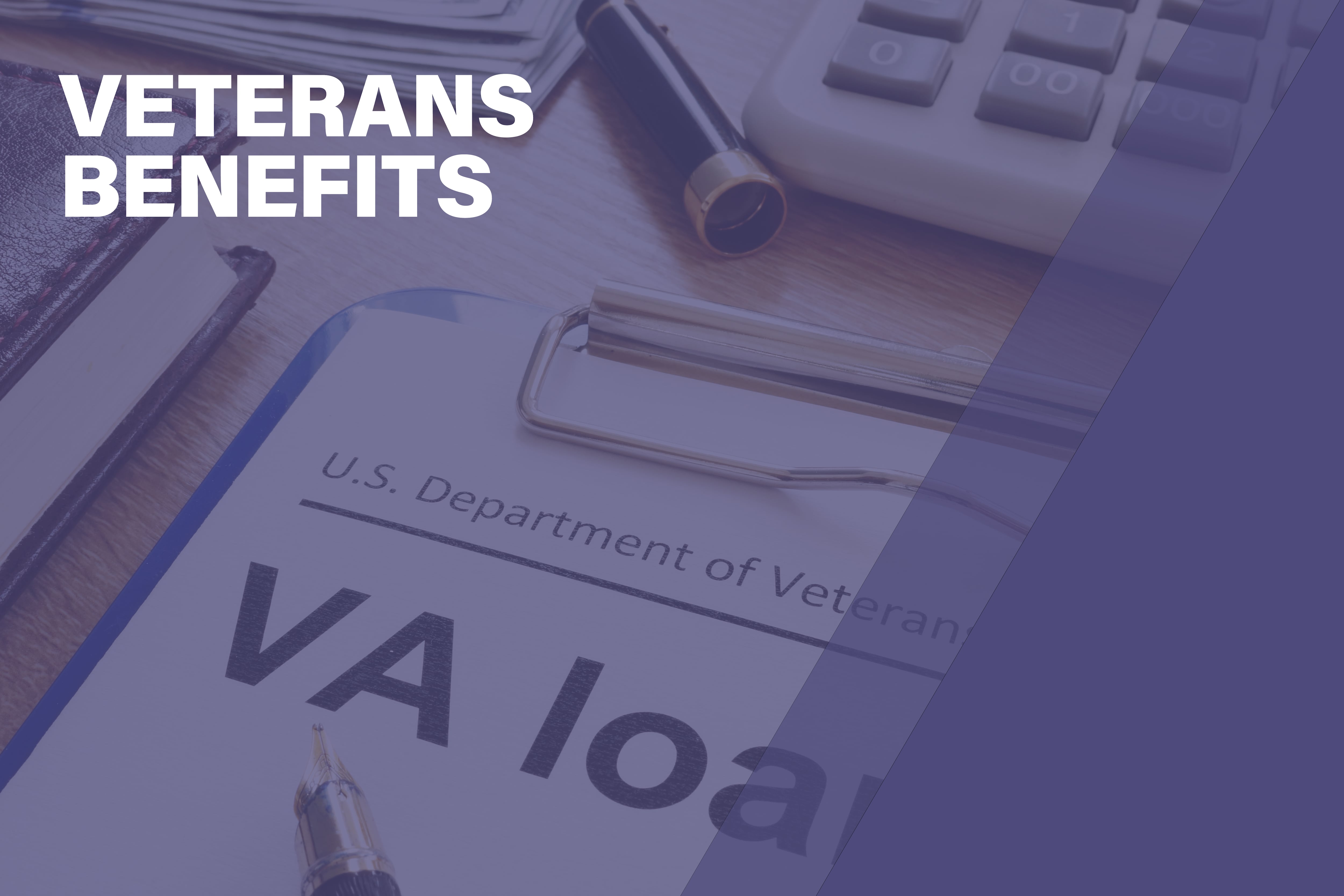Jump to section:
Transition Checklist School VA Benefits Job hunt Entrepreneurship Where to live Spouses Civilian life 101So you finally came around to the idea that you might have what it takes to make it in civilian life? What took you so long? You can trudge through mud and rain while training for three days, stand watch through a humid night in the Baghdad suburbs, or maintain the latest in multimillion-dollar aircraft technology, but you weren’t sure if you could commute to an office somewhere for eight hours a day? Son, that might be your only problem.
But there’s a lot of ground to cover before you start writing TPS reports.
Getting out of the military is a big deal, about as big a deal as going in. It’s not something you just want to up and do one day. If all you do is fill out a checklist and then go back to your hometown and think everything is just going to work out, you’re gonna be in for a big surprise. There are actually some things you’ll want to think about before you go back to the block. Starting with what exactly you want to do when you get out of that uniform.
Which, we’re probably going to need back, by the way.
Will you actually be getting a civilian job? Do you want to do the same thing out there that you did in the military? Or will you go to school? Where will you do these things? How will you prepare to pay for them while you wait for benefits … do you even know how to get into the VA system? You may have it all figured out as an E-4. But the mafia doesn’t teach you about Tuition Assistance, the blended retirement system, or getting a VA home loan. Some of that’s what the Transition Assistance Program teaches. (You did know about the TAP class, right?)
It behooves you to read on. Careful though, there are a lot of big words coming your way.
All of this might seem overwhelming. And it is overwhelming, especially if you want to cover all your bases, have all the information, and make the best call for your future self. Have a seat, stick around for a while and we’ll go through everything you need to know, starting with an honest, no-BS assessment of whether this is actually the right time for you to even leave the military. We’ll cover tuition assistance and everything else you need to know and do before you blow this popsicle stand while maxing out all the benefits Uncle Sam promised you on the outside. We’ll even find out if your military job has a career equivalent in the world outside the guard shacks.
No matter what your answers to these questions might be, this guide will also help you write the kind of resume that blows away interviewers like only a veteran of the profession of arms can. You’ll find out what a job fair is for, what you can expect in an interview, and – most importantly – how to avoid screwing it up. We’re even going to teach you what to do when you land that big job offer.
Maybe some of you have skills beyond what the Army, Navy, Air Force, or Marines will actually trust you to look after. If that’s so, you also likely have the temperament to start your own businesses instead of depending on someone else for your payday. You all had what it took to support and defend the Constitution of the United States. You certainly have what it takes to support you and your dependents. You just have to be smart about it.
We’ll gonna break it all down for you, Barney-style, one last time.

Jump to section:
School VA Benefits Job hunt Entrepreneurship Where to live Spouses Civilian life 101 Back to topYour transition checklist and timeline
Deciding to leave the military might be as big a step as deciding to join. Most of us come in when we’re young, naive, and mostly unprepared. When we get out we’re just as unprepared. Most of us. It doesn’t have to be that way, though. Almost from the moment you decide to get out, someone around you will be telling you what you need to do to make a successful jump from military to civilian life.
But stop and think for a second. Maybe someone who already made that jump is best suited to help you prepare for it. Find yourself a mentor who can help you determine if you’re actually ready to get out and if you’ve taken advantage of all the benefits available to you on active duty versus what might be available to you as a veteran. They’ll also warn you about common pitfalls (and keep you from making those same mistakes) and maybe even help you determine what career you should consider on the outside. Think of this person as a temporary supervisor in your new unit, helping you sort out everything you’re about to face.
And there are a lot of factors to consider: Are you ready for it? Will you be able to make a living? Is your spouse ready? Will he or she need to contribute to your household and are they ready? Where will you go? Are you going to school or right into the job market? Are your children ready? How much help you need will help you determine who will be a good separation mentor for you. Don’t choose a single mentor who never had kids to help you when you have a wife and family to think about.
If you’re going right into the job market, have you considered what you want to do and where you want to do it, along with the training and education required? Do you have any contacts in that industry? You may want to get a second mentor for your coming career on the civilian side if your transition mentor can’t help you with your new career.
Asking for help when you don’t have all the answers is a crazy concept, right? Almost like having a manual to tell you everything you need to know or do and when you need to do it. Speaking of which, I just happen to have a list of everything you need to know or do and when you need to do it: one-stop checklist and timeline filled with everything you need to know or do and when to do it.
Two Years to 18 Months from ETS:
- Find yourself a mentor who faced the same problems you will likely face.
- Choose your civilian career and make sure you’ll be educated and trained with what you need to know by the time you leave the military.
- Did you use Tuition Assistance and are you on track to graduate before you leave the military? Make sure you leave the military with an education or a certified skill.
- What will you do with your G.I. Bill – will you need it to Top-up your TA benefits? Will you need it on the outside or should you transfer it to your dependents? Are you even eligible to transfer them?
- Make sure you’ll have enough money saved up in case of a tight job market when you get out. Having all the skills and training in the world won’t help when no one is hiring. If you have to wait or move to get that job, be sure you’re financially prepared for that with a smart and realistic budget.
- Start meeting people in your desired career field or college – this is also known as “networking.” It’s much easier to get in to that dream school or dream job when the school or business already knows you, likes you, and believes you can get the job done.
One Year:
- Since I know you made that pre-separation budget six months ago, give that another pass and make sure you’re on track. If your destination changed, you’ll have to re-evaluate the budget entirely, to include both the cost of moving and the cost of living.
- If you’re going to school after leaving, it’s time to choose where you’re going, what to study, and start the application process. Make sure you know which parts of the application are due and when.
- This might be a good time for you to learn about VA home loans as well as the process of buying house. If you’re going to move to a new area, you might be able to get house hunting orders.
- Begin the process of getting out of the military, which includes informing your unit and command while starting all the relevant paperwork and taking all the transition assistance classes offered or required. You may even be assigned a counselor.
Six Months To Go:
• Make sure your budget projections are being filled and still make sense. Isn’t it great to know you’ll have all the money you’ll need for all the small expenses that come up along the way?
• Learn to write a resume and write up your own, preferably after meeting with a career counselor and having them look it over. Be sure to show this to your transition mentor and your civilian career mentor (if they aren’t the same person). You can never have too many eyes on your resume.
• Use this resume to start your job search if you haven’t started looking already.
• It’s time to put in for your last household good shipment. The military will pack up and send your belongings to the location of your new life or to your home of record one last time, all you have to do is arrange it and decide where it will all go.
• Consider your post-military health care options. The VA will cover you for a while after you leave the military, but unless your conditions are service-connected that coverage will end. If you have a new employer who offers health care, be sure to enroll in that. You can also find health care coverage through the Affordable Care Act website. Tricare offers temporary health care coverage for newly-separated members under the Continued Health Care Benefit Program (CHCBP) and Transitional Assistance Management Program (TAMP).
• Be sure to update your wardrobe. Jeans and the T-shirt you wear under your OCPs won’t cut it in the real world, especially at a job interview. Ask the career mentor or professional network you definitely developed when I told you to over a year ago.
• Decide where you’ll roll your military blended retirement savings. For plans worth less than $100,000, consider a fiduciary app like Wealthfront. You can manage your savings from your smartphone for minimal fees, much less than most brokers.
• Update your important documents while it’s still free. Documents like living wills and powers of attorney can cost a lot of money on the outside.
• Start your household goods shipments and other PCS/ETS procedures.
Three Months Left:
• Begin working on your VA compensation claim paperwork. Declare everything on your outgoing medical exam. The sooner you finish this process, the better. You may find your own healthcare is entirely service-connected. Your duty station and Veterans Service Organizations (like the DAV) have people on hand to assist with this process. Some states, like New York, have offices to help veterans get this done. Check out the benefits your new or home state offers.
• This is the last chance you’ll have to ensure that budget you made when I told you to is still good to go.
• Review your life insurance options, especially SGLI vs. VGLI. Younger people may scoff at this step, but if you do as this list implores you to do, you’ll be happy you did.
• Get your own copies of your medical and dental records and never give them away. Only ever give away copies.
• Visit your doctor and get medically checked out for free one last time. It gets pricey from here on in.
One Month:
• Choose your health insurance.
• Know your home states veterans benefits.
• Stay on top of your VA disability claim.
• Keep looking for work, considering job fairs, LinkedIn, and other websites as part of your efforts.
• Meet with your school’s veterans benefits office.
Remember that this can all be overwhelming if you wait until the last minute to do everything. So don’t. Staying proactive and ensuring you arrive at each point when you’re supposed to – or even 15 minutes prior to 15 minutes prior – will keep you from losing your mind as the ETS date approaches.
Then you’ll really be able to celebrate a job well done.

Jump to section:
Transition Checklist VA Benefits Job hunt Entrepreneurship Where to live Spouses Civilian life 101 Back to topEducation
Do you want to go to school? Are you even smart enough to get out? Don’t ask what other people think. What do you think? No matter what the retention office tells you, separating is not about loyalty to your branch of service. You proved your loyalty the day you signed up and by doing your job every day after. The Department of Defense is one of this country’s largest employers. They’ll find a replacement for you — don’t worry about that. This is about you for once. This is about being prepared.
What the retention office is right about, however, is that life is tough out there. There is no safety net, no unit to fall back on. There’s no BAH, no BAS. No BS. Once you’re out, you’re pretty much on your own, so it’s important to set yourself up for success from the get-go.
When you were in basic training, some of you likely signed up for this thing called the “G.I. Bill,” which is a great way to get started maxing out those bennies. The rest of you were enrolled automatically. I’ll cover the G.I. Bill in-depth in a few minutes, but first, let’s talk Tuition Assistance.
Listen, TA is as much a benefit as eating at the DFAC with none of the regret afterward. Tuition Assistance offers 100 percent of your tuition paid for while you’re on active duty. It varies slightly by branch but we’re talking about lab fees, special fees, computer fees, and up to $4,500 in tuition paid for to any accredited institution with semester hours that cost $250 or less. Fees add up, make sure you use the benefits you earned to pay for them.
And keep in mind this is not a loan. Once you finish school, you don’t have to ever look back. But you’d better work at it or be prepared for the consequences of failing a class. If that happens, Uncle Sam takes his money back in one lump sum. There are no payment plans, there are no do-overs and you can’t use TA for the same class twice. You also have to pay that money back if you leave the military before you graduate. But why would you want to leave the military without a free college degree or trade certification?
The correct answer is that you don’t.
Now you might also decide you want to go to grad school, business school, or decide to stop being a barracks lawyer and become an actual lawyer. Be sure to take those aptitude tests before you ETS. Free testing is just another educational benefit you can get for free while you’re still in. You just have to go to the education office after work instead of the Class Six.
Earning a diploma, even if it’s from Charleston Southern or Northern Illinois and not the Harvard your mama knows you deserve, will really cut into your time picking up the locals at TGI Fridays, but it’s worth the effort. Just make sure you’re not going to Bob’s Discount Degree School or anything offered on television. You can get any level of degree that you don’t already have.
If college isn’t your jam, you can use TA to learn skills like carpentry and ASE certified car repair. This is all before you ever touch your G.I. Bill benefits or take off the uniform for the last time.
Maybe you don’t have time to finish a degree using Tuition Assistance, but still want to get the most out of your education benefits — plus you’re a hotshot who can pass any test. In that case, you can go to your education office and take CLEP tests – College-Level Examination Program – for free. Pass the test with knowledge you already have and you’ll get college credit for the class. These tests are free while you’re in and are covered by your G.I. Bill when you’re out.
So take them while you’re in, genius.
Some of you could conceivably CLEP an entire degree program after going through military training. Depending on the school and the course of study you choose, you can take your Joint Services Transcript to a number of regionally-accredited school and see what they can do for you. Don’t just take the first good deal you get. Shop it around – someone might accept the whole thing.
That’s right. College credit just for basic training.
If your school of choice is more expensive than the limits set on Tuition Assistance, you need check to see if their admissions department accepted the right person and if it’s a legitimate academic institution. If a real school really did accept you and TA doesn’t cover it all, you can fill in the gap using the “Top-up” benefit of the G.I. Bill.
Now, the G.I. Bill might be the most important benefit of joining the military, so stop playing grabass on Instagram and read closely.
There are a lot of programs the G.I. Bill will cover. The “Top-up” program I just mentioned is a great benefit, but should only be used if you aren’t going to school after leaving the military. Even then, you need to consider if you’re eligible to transfer your benefits to your spouse and/or kids. If you have 10 years time in service and for some reason can’t re-enlist, you should consider transferring those benefits while you spend the rest of what’s left of your time in service wisely.
If you are going to use this benefit after you leave the military, you need to know what to do with it. College isn’t for everyone and that’s okay. You can use it for other training classes like flight training, apprenticeship programs through private employers, licensing and certification testing, and some technical non-degree programs.
For the rest of you, the Ins and Outs of the G.I. Bill will be covered in the next section, one I call
“Probably the most important benefit of joining the military.”
Your GI Bill
You get a lot of stuff for joining the U.S. military — so much it’s difficult to keep track of it all. Luckily, everyone around you is constantly trying to inform you about them, from your TAP class to the article you’re currently reading. You get a retirement plan, school tuition and fees, a competitive home loan, and so much more, depending on how long you stay in. But the one thing everyone gets after staying on active duty for a certain amount of time is the benefit of the G.I. Bill.
Knowing how to maximize its potential is essential to maximizing your own.
In the last section we talked about maxing your Tuition Assistance benefit before you get out and making sure you use the G.I. Bill after you leave the military. If you’re not sure if you’ve been effective with your use of TA, feel free to go back and read. There used to be a time limit to using the educational benefits of the G.I. Bill. That’s all gone now. Like the nickname you earned in Fayetteville, this is with you forever. The only other consideration is if you decide you might want to transfer the benefit to a spouse or dependent.
Transferring to a dependent is an option if you’re finished with school or training, but only if you’re still on active duty and only if you have ten years in service or have six years and will serve another four. Once you transfer the benefit, it’s theirs.
If you’ve already decided on going to school or vocational training, let’s continue.
You need at least 36 months of time in service after 9/11 to get 100 percent of the Post-9/11 G.I. benefits. Or you need a Purple Heart. If you weren’t wounded by the enemy and don’t yet meet the 36-month requirement, you’ll need to find out what percentage of benefits you can claim.
Most of those reading this will receive Post-9/11 G.I. Bill benefits, which pays 100 percent of a state school’s tuition. For private and foreign schools, you can count on around $24,000 per year and a lot of private schools will share at least most the rest of the cost with the VA through the “Yellow Ribbon” program.
Be advised: for very costly programs, you still might end up having to take on some student debt. Most of you will be fine. But that’s just tuition and fees. A lot more goes into college than just paying for the privilege. You still need to live and buy books, geniuses. The Post-9/11 G.I. Bill has you covered there too.
The bill gives a stipend of $1,000.00 for books and supplies as well as providing a monthly housing allowance. That amount is determined for a member at E-5, who lives in the same zip code as your school. For supplies, you’ll get that in a lump sum at the beginning of a semester or quarter, so be on the lookout and ensure you don’t blow it on a case of Natty Light.
You get 36 months of this benefit as long as you have an honorable discharge or a discharge characterized as honorable, which means you need to keep your nose clean. Once you’re in college, live it up because you need to get a job after this... just try to stay as clean as possible.

Jump to section:
Transition Checklist School Job hunt Entrepreneurship Where to live Spouses Civilian life 101 Back to topVeterans benefits
Listen, there are a lot of benefits to military service. There are so many the military actually hires people to explain them all to you. But chances are good this information was in a handout packet from your Transition Assistance class you didn’t read.
Luckily, I’m going to give you a quick & dirty rundown of the major points. It would behoove you to go seek out the details of these benefits, since they cover basic needs that people will need their whole lives, like income, housing, work and things like that, since your mama and Uncle Sam aren’t footing the bill anymore.
The first thing you need to do is file a claim for your VA benefits. The second thing you need to do is keep following up on it. Based on your submission and the VA’s subsequent (likely terrible) review of your records and a physical exam, the VA will designate a disability rating for you and assess if any of your chronic conditions are a result of your military service. If they find a condition like that, they call it a “service-connected disability” and will take care of that condition for the rest of your days. If they find enough things wrong with you that are related to service, they’ll just take care of all of you for life. You will also get a check in the mail every month to help ease your pain.
See how important that is? So you are strongly advised not to go through this process by yourself. Once you give up your military medical records, you will likely never see them again so you should photocopy everything and fill out your VA disability claim with an expert. Many Veterans Service Organizations (Like the American Legion) are more than just old guys sitting around drinking beer in the middle of the day. They can connect you with someone who can shepherd you through this process. If you do nothing else, take the time to do this right before you go to that new job or start school.
Now, if you decided more education isn’t for you, that’s okay. Be sure you transfer those G.I. Bill benefits to your spouse or children, though. But if you’re six months away from your discharge date, you still need to get moving. It’s time to find a job for yourself. By now you should at least have a post-military career resume squared away and know what field you want to go into. If you’re looking to go into government, you’re in luck, the government’s veterans preference policy gives you an edge over other applicants. Governmental agencies are required by Congress to weigh their applicants with this preference.
Not everyone automatically gets veterans preference. There are even different levels of it. You also need to be discharged under an honorable or general discharge, so I hope you kept your nose clean. You get a ten-point preference if you have a service-connected disability with the VA or were awarded the Purple Heart. You have a five-point preference if you are authorized to wear a campaign or expeditionary medal. There are actually a few gray areas and exceptions to these rules, so be sure to actually look up the details before you start applying.
The next thing we need to talk about isn’t something everyone in the military just gets, but it can be clutch when finding a job if you do have it: your security clearance. Chances are good that somehow the military actually trusted you with sensitive information. Lucky you.
If your military career required a security clearance and you want to do the same job as a civilian, you’re still gonna need it. Even if you’re looking to work in another field but still need a clearance, that clearance is going to save your new company time and money in hiring you, and they know it. So don’t go crazy after your last day in the military and lose that clearance. You can still pull stupid stunts when you retire from your $200,000/year aerospace defense job, so don’t risk it all now.
That’s not even the biggest benefit. There is one benefit so powerful as soon as you activate it, your phone will not stop ringing and your email inbox will explode: the VA Home Loan. The VA guarantees part of these loans, making them so attractive to lenders, they’ll throw themselves at you like you’re a female deployed to a tent city. If you’re smart about this, you’ll know exactly what kind of interest rate you want and how much you can afford. Do your research and get the right loan, the banks will take your money but they won’t do the legwork for you.

Jump to section:
Transition Checklist School VA Benefits Entrepreneurship Where to live Spouses Civilian life 101 Back to topThe job hunt
If you think you can do better on the outside, we’re not here to tell you you’re wrong. We’re just going to tell you a suit doesn’t look half as cool without your medals and rank. But if you insist on going to a different office every day, you need to figure out which ones you want to get into, which ones will actually have you, and then how to actually get in there.
Maybe you actually liked your military specialty and just want to do the same work on the outside. Then, good news! You can. Google has a search function for veterans looking for work in their field. All you need is your MOS, AFSC, NEC, or rating (if you don’t know what some of those are, they don’t apply to you). Just google “veteran job search” to find the search box and google will find openings in your area. You might have seen a Super Bowl commercial about it.
If you aren’t sure if your military career is for you, talk to an advisor or use some online tools to find out. Don’t freak out if you’re unsure. Most people leave the military relatively young, so there will always be time for a career change later.
There’s a chance you don’t want to continue working in your military occupation. If that’s the case, I hope you’ve spent some time getting an education in the field you want to work in. Most jobs don’t just open the door to anyone. The uniform looks cool but no one is going to hire you just because you wore cool clothes once. Assuming you have the basic skills necessary, you will need to have a resume, master some interpersonal skills, and be ready to do some serious legwork.
For writing a resume, there are a thousand tools that will help you learn how to do this but the most important thing to remember is to use the English language. Spell check everything. Look for typos. Act like this document is going to the Sergeant Major of the freaking Army because it’s an employer’s first impression of you and you don’t want them to know how much of a fool you are until it’s too late. Know all the jobs you’ve ever had, the skills and tools you learned for it, as well as all the education and certifications you needed. Once you have all that, it’s just a matter of putting it together in a concise way.
If you need help translating your EPR bullets into civilian resume terms, have no fear, click here.
Remember how I told you you don’t want an employer finding out how much of an idiot you can be? Well if they like you, chances are good they’re going to check out your social media pages, so you might want to either go ahead and delete the memories of all your nights around Fayettenam or just make all your profiles private and give access only to the people who know you in real life. Facebook, Instagram, Twitter, Tumblr, all of it. While you’re at it, take that nifty new resume and create a LinkedIn page with a decent photo of yourself. Employers are looking for this nowadays. Be sure to make that one public.
Maybe you don’t know where you want to look, if you want to live where you’re stationed or live near your home of record, or maybe you’re out to shoot for the moon and look for work somewhere entirely different. All of that is ok; the choices are big when the world is your oyster. Just remember that some companies are better at hiring vets than others. Some cities are more vet friendly than others, and before you land that big job offer, make sure you know how to negotiate a starting salary that takes your experience into account.

Jump to section:
Transition Checklist School VA Benefits Job hunt Where to live Spouses Civilian life 101 Back to topEntrepreneurship
You think you’re gonna get started in civilian life being your own person, do you? Alright, then. Just make sure you know what you’re getting into. Starting and running your own business can be expensive and more work than punching a clock for some other guy. Not to say that anyone can’t do – this is America, after all – just make sure you know what’s about to happen.
Maybe you want to make it easy on yourself and open that Subway sandwich shop you always thought about. That is called a franchise, young entrepreneur. You know, where all the branding and marketing are done for you, you just have to open the business, lease the building, buy the food, and everything else that comes with it. That’s one way to start your own business, and it’s not a bad one. It can take a lot of the guesswork out of getting started, it just costs a whole lot more up front.
But here’s what you may not know: fast food restaurants aren’t the only franchisers out there. Did you work finance in the military? Maybe you want to franchise a Padgett Business Solutions branch. Or maybe you were a civil engineer? Then a Mr. Rooter franchise is a possibility for you. Auto mechanic? You might have the Midas touch. Something you visit on the daily might be something you can work and own one day. Look it up.
If you have a dream of opening your own business and building it from the ground up, that’s okay too. That’s what your parent’s garage is for – don’t let them fill your head with garbage about parking their cars. Research the market, plan for what you’re trying to sell. You could even do a test run for the product. There’s nothing wrong with a free sample, as long as they’re coming back for more.
But there’s a good chance you have no idea where to start. That’s alright, you can still start your combination weightlifting gym and t-shirt company. You might even start by asking your spouse where to start, because there’s a good chance he or she already started a business from home while you were really struggling on your deployment to Ramstein. The U.S. Small Business Administration also has a Veterans Business Outreach Center, there are even civilian non-profits that want to get you into the game. They’ll teach you everything you need to know, from the supply chain to the demand center.
The best part about all of this is you don’t need an MBA to get started. Many, many successful businesses and corporations were started by people who had a good idea and would not give up on it. Steve Jobs and Steve Wozniak started Apple in the parent’s garage we talked about. Ray Kroc got McDonald’s going by sheer determination and ergonomics. Mat Best launched Article 15 using funny veteran videos. There is nothing in these examples you can’t do and they’ll be the first to tell you that.
Since many of you will be coming into a real job market and/or a real business market for the very first time, chances are good you’re strapped for cash and have little to no great credit history to fund your first business. In that case, there’s a lot you should probably know about getting started — but don’t freak out just yet, people want to help you there too.
The important thing to remember when starting your first business as a newly-separated veteran – or whenever you’re starting a business, really – is to not fear taking risks. There is no significant reward without significant risk, so if you’ve done the research and you took the training, there’s no reason you shouldn’t trust yourself to see this through. Our allies in the British Special Air Service have the perfect saying for this situation: Who Dares Wins.

Jump to section:
Transition Checklist School VA Benefits Job hunt Entrepreneurship Spouses Civilian life 101 Back to topPicking a place to live
You’ve heard a lot of talk – from me and from other people, no doubt – about what you’re going to do when you get out of the service. Just as important as what you’re gonna do is where in the world you’re gonna do it. If you’re lucky, this location will be determined by your school or your job and you won’t have to think any more thoughts about it.
And then, you might. So where would you go if you had the world to choose from?
Every year, reputable sources publish a list of the best places for veterans to live, and they aren’t wrong. They take into account everything vets need and are accustomed to having, which includes VA medical services, quality of life for people entering the civilian world, and even support from other veterans. The list might not surprise you, as places in Virginia, Maryland, and Texas rank very high on the list, while Colorado Springs sits at the top.
Let’s go back to your new degree program or new job choosing the place you live when you leave the military. Is the location of the school something you took into account? Did you consider the local area if you have a family? What about the new job – it’s great to work for a federal agency, but chances are good living in the District of Columbia might be out of your price range. Are you ready for that daily commute? How will you get to work or class? How will your family meet those same needs? These are all important considerations as you transition into the next phase of your life.
This decision doesn’t necessarily have to change the rest of your life. After all, if you get another big job or you graduate and take a big job, you’ll end up moving again anyway. The whole idea is to have a support system in place and make your transition to civilian life a simple as possible. So let’s be real for a moment: it’s gonna be difficult. No one ever got out of the military without a single hiccup or regret. You can follow every one of these suggestions, completely stick to the timeline we gave you, or the one the transition office gave you, or the one anyone gave you because you received so many, and things are still going to happen.
But being able to get to school while your spouse heads off to work doesn’t need to be one of those issues. Finding a doctor for yourself or your kids doesn’t need to be one of those issues. And finding a place you feel at home shouldn’t be one either.
So if you’re a big city person, just do the research. You’ll have no problem finding schools for everyone who needs one, along with jobs, food, and fun. You’ll probably even find multiple VA facilities to serve your needs and finish your VA disability examination. In a small town, you might have more difficulty checking every box but it’s not impossible. Do the research and figure out what’s right for you and yours.
When you know where you really want to go and find a new home there, be sure to update your home of record with the MPF. When you leave the military, you will get one free shipment of household goods to that home of record as a final send-off from America’s greatest fighting force. Be sure it’s all going to a place you really want to meet it.

Jump to section:
Transition Checklist School VA Benefits Job hunt Entrepreneurship Where to live Civilian life 101 Back to topGuess what, your spouse and family are transitioning to new lives just like you are. Gone are the days where Uncle Sam dropped a bag of money on your homes on the 1st and 15th of every month. With this in mind, your husband or wife will likely need the same separation help you’re trying to get, except they aren’t forced to take a TAPS class as part of their separation outprocessing checklist – but that doesn’t mean the options aren’t available. It just means you haven’t looked for them.
So the next time your spouse makes you mad, go sign them up for one of these spouse transition courses your base 100 percent definitely has available. In the Marine Corps, they’re called STARS, Spouse Transition and Readiness Seminars, and they’re three hours long. Remind your spouse it’s full of good information they need for the coming years and then go watch the latest Avengers movie without them. Treat yourself.
After he or she has all the information they need, they will likely feel as overwhelmed as you did when first presented with it all. Maybe it will be a good idea to help them plan their transition as any number of people are working to help you plan yours. Without telling your spouse you’re as overwhelmed as they are, sit down in a relaxing environment and have a frank discussion about their goals. Maybe stop at the local Red Lobster (treat yourself) and find out what they want to do when you no longer attached to the military lifestyle.
They might want to go back to school or start their own business if they haven’t already. Maybe they want to live closer to their family and not yours. Maybe they’ll question the entire premise of your marriage, considering you didn’t know they were already an HerbaLife partner and has been for years, that they wants a brick and mortar store in St. Louis, and how dare you watch Endgame, they can smell the popcorn on your clothes. It’s about time you started thinking of someone else for a change.
After you and your spouse make up for your blatant lack of cinematic consideration, get copies of their medical and dental records, update all your legal documents, and prepare financially for the new life you’re building for yourselves, all that’s left will be taking care of your children, if you have them. Luckily all you need to worry about is child care while you’re at school or work because the good folks at Sesame Street have this covered.
The bottom line is your spouse needs all the same information you do. Your family will soon be the only unit of which you are still a member, so whether you’re the commander or just the director of operations, be sure you disseminate necessary information accordingly so he or she can be as prepared as you’re trying to be.
Besides, everything goes better with a partner. There are a lot of people doing this on their own.

Jump to section:
Transition Checklist School VA Benefits Job hunt Entrepreneurship Where to live Spouses Back to topHow to be a civilian
Veterans are quickly becoming a bigger part of the American population. We now make up slightly more than 10 percent of the U.S. population but there are many, many more civilians. Depending on the very careful, well-thought out decision I know you made on where to live, you may not ever see another vet. So along with all the other things you need to know about getting out of the military, now we need you to learn how to not be in the military anymore. You’re in for some culture shock.
A lot of civilians do not show up to things on time. They sure as hell don’t show up 15 minutes early to everything. They also eat their food at a normal pace. And there are so, so many slow walkers out there. But they don’t have the same ingrained training you do. Does that make you better than they are? Absolutely not, and you can’t let that get to you. Civilian life can be stressful enough without adding to it unnecessary and stupid irritants.
There are so many ways to confront the stress of everyday life. Your new civilian job is highly unlikely to give you the same time to PT as you had in the military, but working out is a great way to burn off the stress of walking behind an entire school of people who don’t seem to have anywhere they need to be anytime soon. The internet is full of ways to lead a low-stress life. You can find out what juice cleanse Gwyneth Paltrow is using this week or you can try some yoga with pro-wrestler Diamond Dallas Page. The point is that you do something.
The Marine Corps Community has five mindfulness steps you might find interesting, because no one knows a stress-free life like the United States Marine Corps.
1. Don’t give negative thoughts more than 5 or 10 minutes of attention.
2. Focus on the positive. This could be a new job, a good book or a great hike you’ve enjoyed recently.
3. Change your activities. This could be as simple as moving from one room in the house to another. When you find yourself starting to think negatively, start washing the dishes or put a load of laundry in the washing machine. The idea is to remove yourself from the location where your negative thoughts occurred.
4. Go for a walk. Nature walks are really great at defusing heightened reactions from a memory of your past.
5. Talk to someone. Sometimes simply sharing your worries with another person can help you feel better. A trusted friend can provide support and help you focus on the present.
Those are just suggestions. A little trial and error and a little experimentation will help you find out what’s right for you. Just remember that drugs and alcohol aren’t the answer. They will eventually just become a problem in their own right while compounding the rest of your problems. The world has enough homeless, addicted, alcoholic veterans to take care of and we don’t need one more. That being said, be sure to look out for your brothers and sisters while you’re at it.
It’s great to identify as a veteran but since most vets leave the service at a very young age, it’s important to remember that your life is really just beginning. The military is not the only thing you’re gonna do with your life. It’s not even the best thing that you’ll ever do. To ensure you make it, you need to know that money will be tight for a while.
There’s nothing wrong with buying a Grunt Style shirt to go with your new Propper pants and backpack, but rein in your spending. You or your spouse might face periods of unemployment. Not having many of the base services you became accustomed to will strain your budget. And you may need a brand new wardrobe for your new life. Unplanned expenses come up all the time, but if you have a budget, you will survive.
There are a lot of budget styles out there to look at. Tailor one to your life. But the simplest budget is the 50-20-30 budget: put 50 percent of your paycheck toward expenses, 20 percent toward your savings, and then you can blow the last 30 percent on whatever you want – because you still need to have fun in life.
That’s all civilian life is: meeting your needs, managing your expectations, and setting your own priorities. Only now the Armed Forces of the United States isn’t meeting, managing, or setting any of that for you. So feel good about buying that scooter, going to Coachella, or ordering $20 of avocado toast, which is what I assume the kids are all about these days.
Blake Stilwell is a writer and former Air Force combat photojournalist. He lives in Los Angeles.






